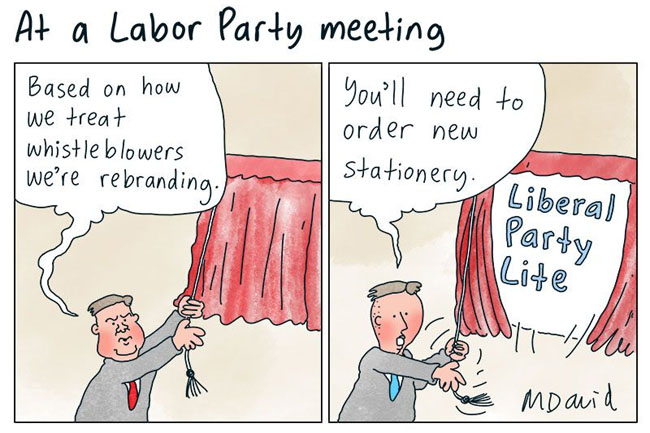A report condemning the Adani Group's history of alleged fraud, bullying and criminal acts has the potential to destroy what's left of the company's reputation. Professor John Quiggin reports.
I RECENTLY WATCHED a documentary on the rise and fall of Bernie Madoff, who ran what was, at the time, the biggest Ponzi scheme in history, involving total claimed assets of US$65 billion (AU$92 billion). I was reminded of it with the recent publication of a report from the short-selling firm Hindenburg, denouncing Gautam Adani – whose personal worth peaked at US$150 billion (AU$212.7 billion) – and his business empire as running ‘the largest corporate con in history’.
There is one big difference between the two cases. Until the day his sons forced him to turn himself in, Madoff was one of the most respected men on Wall Street, lionised as one the founders of the NASDAQ exchange. Although one analyst had repeatedly denounced him in terms very similar to those used by Hindenburg, he was ignored by the Securities and Exchange Commission (SEC). Media questioning of Madoff’s funds was infrequent and very cautiously worded.
When Madoff was caught, many were unwilling to believe the worst. It was suggested that he must have started out as a legitimate trader, then turned to fraud when the business ran into difficulty. In reality, it was a con from day one. Madoff’s “hedge fund” never bought any shares at all and his growing team of employees (located on a separate floor from his legitimate brokerage business) operated solely to produce fake documentation. They were good enough at it to dupe some highly sophisticated investors, who were as shocked as the rest of the world when the news came out.
By contrast, nothing in the Hindenburg report came as a surprise to anyone who has followed Adani. Adani’s status as a crony of – and recipient of favours from – would-be Indian dictator Narendra Modi has been the subject of continuous criticism. The fact that the Adani Group is tightly controlled by a family group, some with very dubious records is well-known. So is the opaque corporate structure, with shell companies in obscure locations. And the rickety structure of the debt-ridden house of cards that is the Adani Group is there for all to see.
But until now, no one has had the resources to put all this together. Hindenburg, which has placed large bets that Adani debt will default, has put a lot of money into collecting the evidence on the sham companies Adani has set up in Mauritius, undeclared self-dealing, links with criminals and so on. The Carmichael mine-rail-port project gets a few mentions along the way.
The bullying tactics Adani has used to silence critics like Adrian Burragubba (driven into bankruptcy) and Ben Pennings (followed by Adani spies as he took his daughter to school) have been covered extensively. The Hindenburg report describes similar cases in India.
The impact of the report has been amplified by a parallel scandal, in which the Modi Government has managed to block Indian access to a BBC documentary critical of his role in anti-Muslim riots. No one who has followed the debate over “free speech” will be surprised to learn that Elon Musk banned any links to the documentary.
Unsurprisingly, Adani shares fell when the report was released. But a recovery might have been expected as people questioned Hindenburg’s (entirely self-interested) motives. Instead, Adani’s unsatisfactory response has failed to stem the rout. The most striking point made in the response was the one I’ve already noted, that much of the information in the Hindenburg report was already public.
It remains unclear whether these exposures will be enough to bring the Adani empire down and, hopefully, put an end to the Carmichael mine project. Adani has some substantial assets, and the backing of Modi and other cronies such as the royal family of the United Arab Emirates. But having risen so far, he may prove “too big to bail”.
John Quiggin is Professor of Economics at the University of Queensland. His latest book, 'Economics in Two Lessons: Why Markets Work So Well and Why They Can Fail So Badly', is out now from Princeton University Press. You can follow John on Twitter @JohnQuiggin.
Related Articles
- Adani's Carmichael mine worsening Asian energy poverty crisis
- Adani's promise of jobs doesn't add up
- Future Fund's Adani investment supports Myanmar coup
- The cost of the Adani mine on the planet's health and our own
- Adani, Yeelirrie and mining: Our environmental laws are broken
 This work is licensed under a Creative Commons Attribution-NonCommercial-NoDerivs 3.0 Australia License
This work is licensed under a Creative Commons Attribution-NonCommercial-NoDerivs 3.0 Australia License
Support independent journalism Subscribe to IA.














